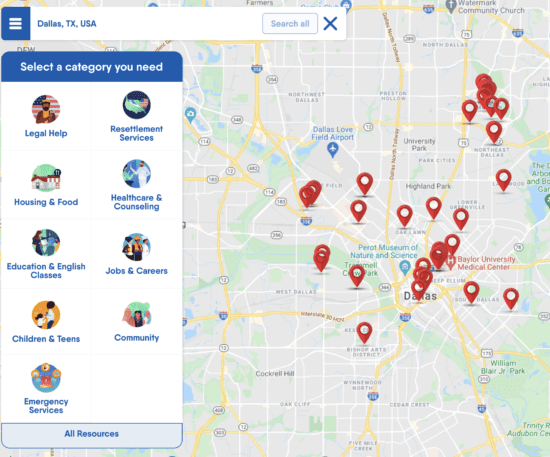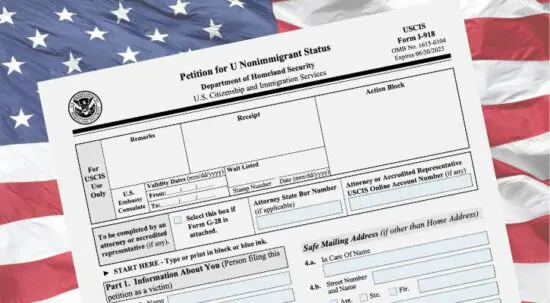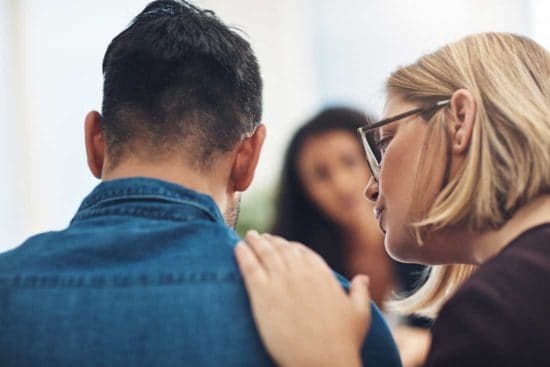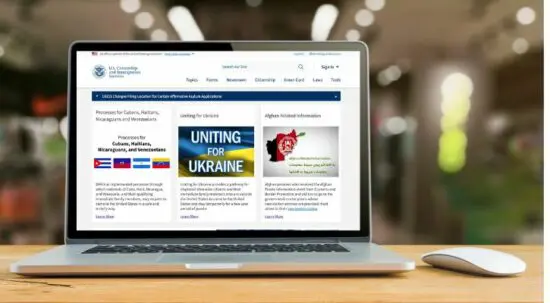The U.S. government offers immigration protection for certain victims through the U.S. Citizenship and Immigration Services (USCIS). T visa is for victims of human trafficking and a U visa is for victims of serious crimes.
What is a T visa?
T visas (also called T nonimmigrant status) offer protection for victims of severe forms of human trafficking.
Human trafficking is when people are forced to work or do things they do not want to do through force, threats, or lies. It is a serious crime in the USA. Traffickers often trick people with false promises of jobs and a better future. They also use fear of deportation.
There are 2 main types of trafficking for this visa:
- Sex trafficking: when someone is forced, threatened, or tricked into engaging in a sexual act that makes money for someone else.
- Labor trafficking: when someone is forced, threatened, or tricked into working. This could mean being forced to work against their will or in order to pay a debt. They are usually not allowed to quit and are not paid right. They may live and work in bad conditions that are not safe or healthy.
People with T visas get nonimmigrant status for 4 years. Nonimmigrant status means it is temporary. They may be able to get a Green Card to stay in the United States if they meet certain requirements.
T-Visa holders can:
- Stay in the USA for up to 4 years
- Work legally in the U.S.
- Avoid detention and deportation
- Request legal status for family
- Receive public benefits
- Apply for a Green Card to stay permanently if requirements are met
| T visas are still available under the current U.S. government. You can apply for a T visa and continue to receive T visa benefits. If you have questions, talk to an immigration lawyer. |
Who can apply?
You can apply for a T visa if you meet each of the following requirements:
- You experienced a severe form of human trafficking.
- You would suffer extreme hardship if you were forced to leave the USA.
- You are physically present in the USA or its territories because of trafficking.
- You help law enforcement with any reasonable request related to the trafficking investigation.
- You meet U.S. admissibility requirements or have a waiver. You might be inadmissible if you have committed certain crimes or pose a threat to the public. If you do not meet admissibility requirements you may still be eligible to apply if you have a form I-192. A legal representative can help you with this.
If you were under 18 when any trafficking occurred or you could not help due to trauma, you may not need to have helped law enforcement.
How do I apply?
You apply for a T visa through USCIS. It does not cost anything to apply. You will need to:
- Complete Form I-914.
- Provide evidence you have been a victim of trafficking.
- Provide evidence that you are currently in the USA because of trafficking.
- Get a certification from law enforcement with Form I-918, Supplement B that states you are helping their investigation. You do not need to have this if you were under 18 when trafficked or are not able to help because of severe trauma.
- Include a personal statement about your experience.
You will mail your forms to the USCIS Vermont Service Center.
| It is important to get legal advice. A lawyer or accredited representative can help you find out if you qualify and complete your application. |
When you apply you will need to collect evidence to show that you meet the visa requirements. Two of the main things you will need are:
- A certification from law enforcement (Form I-918, Supplement B)
- A personal statement
Someone at a law enforcement agency, such as the police, will need to show that you have helped with any reasonable requests in their investigation. You do not need to have this if you were under 18 when trafficked or are not able to help because of severe trauma.
The second piece is a personal statement, also called an affidavit. Although it may be difficult to share your story, this is a very important part of your application. You will need to include information about how you were trafficked and what you were made to do. You will need to include specific details like dates and locations whenever possible.
In some cases, you might include additional documentation. Examples of this supporting evidence could be:
- Police reports
- Medical documents
- Psychological documents or statements
- Legal paperwork
- Witness statements
- Letters from social services
- Letters of support from people who you and your situation
- Records of threats or coercion like text messages or emails
- Documentation of forced labor
A legal representative can help you make sure you have what you need. They can also help make sure that you only share evidence that will help your case.
Yes, you may include certain family members in your application:
- If you are 21 or older, you can include your spouse and children under 21.
- If you are under 21, you can include your spouse, children under 21, parents, and unmarried siblings who are under the age of 18.
You must file Form I-918, Supplement A for family members. If approved, your family members will receive a derivative T visa. You can file this at the same time as your application or at a later time.
After you file your application you will receive a receipt notice. This notice will have information you will need to be able to check the status of your case.
USCIS will review your application and may ask for more information. You may be scheduled for a biometrics appointment to provide a photograph, fingerprints, and your signature.
You will get a decision in the mail.
Currently, the average processing time for T visa cases is 20 months.
Each case is different, and some may take more or less time to complete. You can track the status of your case online or send questions to the USCIS Vermont Service Center.
If your T visa petition is denied you will have the same immigration status when you applied. However, you may be able to appeal your decision.
You might also qualify for other forms of protection including VAWA, temporary protected status, U Visa, or other humanitarian programs. Contact an immigration attorney or accredited representative to review your options.
It is very important to talk to a legal representative to find out if you can safely travel abroad. If you leave the country while your T visa application is pending, you may not be allowed to return. Leaving the country could also put your case at risk.
Once you have an approved T visa, you can apply for advanced parole to travel outside of the USA. It is important to know that any time you leave the country with a temporary visa, you risk being denied reentry. Travel outside of the USA may also create problems for your Green Card application. A legal representative can provide more guidance.
T visas are valid for up to 4 years. If you do not adjust your status or renew your visa before it expires, you will have the same immigration status you had before getting your T visa.
You are encouraged to apply for a Green Card before your status expires. If you do not apply for a Green Card, you may be able to extend your T visa status in certain situations by filing Form I-539.
Qualifying reasons for a T visa extension include:
- Exceptional circumstances
- Request from law enforcement
- Delays in consular processing
- Pending Green Card application
You may still face immigration enforcement even if you have applied for or been approved for a T visa.
- Always carry your immigration documents and proof of two years of residence. Make sure you have copies of your receipt, approval notices, and work permit on you.
- Save the contact information for the advocate and lawyer involved in your case.
- Be prepared for ICE. Learn what to do if immigration officers stop you. Know your rights and how to create a safety plan.
Work permit
A work permit is also called an Employment Authorization Document (EAD). An EAD shows employers that you are allowed to work in the USA.
If you are the principal applicant you will automatically get your EAD card when your Form I-914 is approved if you checked “Yes” on Part 3, Question 10. You do not need to file a separate application.
If you are a qualifying family member on Form I-914, Supplement A you can get your EAD by submitting Form I-765. You can submit this at the same time as you send in your petition or you can send it later. You must be inside the USA to get an EAD.
Public benefits
T-visa holders are eligible for a range of public benefits. Once approved, you’ll get a letter from the Health and Human Services Department. It will certify your eligibility. You can use this to apply for benefits.
If you are a trafficking victim but you do not yet have your T-visa, you may still be able to get public benefits. You will need one of the following:
- A certification letter from the Department of Health and Human Services
- Proof you have Continued Presence (CP). CP is a temporary immigration designation from the Center for Countering Human Trafficking
Public benefits you can apply for include:
- Housing assistance
- Food and income assistance
- Employment assistance
- English language training
- Health and mental health services
Green Card
If you are approved for a T visa, you can apply for lawful permanent residence and get a Green Card. In most cases, you must have lived in the USA for 3 continuous years and meet other requirements.
To apply for a Green Card you will need to file Form I-485. Learn about the requirements and process for a T-visa holder.
If approved for a Green Card, you may be eligible to apply for citizenship after 5 years.
Your safety
USCIS will keep all your information confidential. They will not share your information without your permission except in rare cases.
If you do not feel safe getting mail at your home, you can get a safe address you can use on applications.
Many undocumented immigrants worry that if they report a crime, they may be deported. The T visa program is there to help people who are victims of trafficking and make it safer to report them. You are not required to have legal immigration status to apply for a T visa.
Find help and support
Legal Help
It is important to get legal advice as you consider your options. A lawyer or accredited representative can help you find out if you qualify and complete your application. Many organizations and lawyers offer free or low-cost legal help.
Human trafficking help
Call the National Human Trafficking Hotline at 888-373-7888 or text HELP to 233733 (BeFree) for help and to report trafficking. You can also chat online or submit a tip using the online form.
You can talk to a person 24 hours a day, 7 days a week. Interpreters are available over the phone in more than 200 languages. You do not need to share your name or personal information. Any information you provide will not be shared without your permission.
The hotline can help you:
- Get crisis support, emergency assistance, and safety planning
- Connect to organizations that offer shelter, transportation, legal help, and case management
- Find local resources with an online referral directory
You can also report trafficking to the Homeland Security Investigation (HSI) Tip Line online or by phone at 866-347-2423.
Call 911 if you are ever in immediate danger. You have the right to emergency help no matter what your immigration status is.
Emotional support
Survivors of trafficking may experience trauma, leading to sadness or depression. Getting mental health support can help you feel better. Learn more about trauma and where to find help.

Find legal help, English classes, health clinics, housing support, and more. Search a local map and list of services for immigrants in the USA with the app FindHello.
The information on this page comes from USCIS, WomensLaw.org, and other trusted sources. We aim to offer easy to understand information that is updated regularly. This information is not legal advice.




